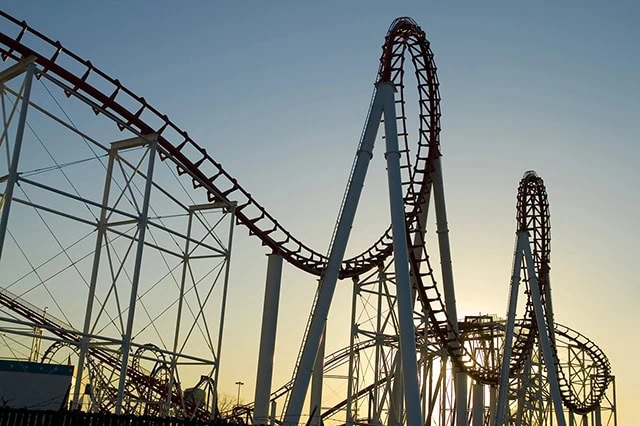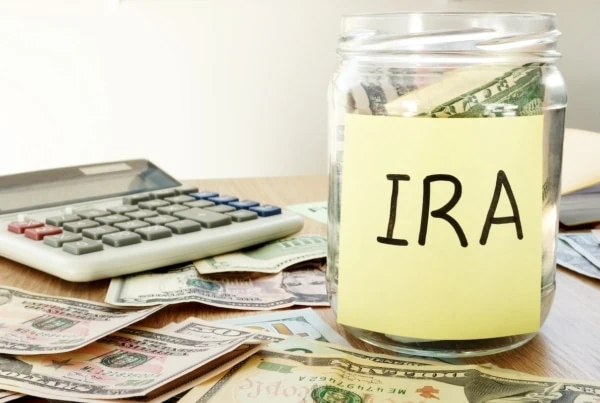Retirement is meant to be the payoff for decades of hard work, time away from friends and family, and personal sacrifice.
But many Baby Boomers—Americans born between 1946 and 1965—either aren’t enjoying, or fear they won’t experience, the retirement they’ve toiled so diligently for. In some cases, retirement just isn’t living up to expectations for many Boomers, and some believe the state of retirement is worse than it has ever been.
Let’s discuss some of the reason that some Baby Boomers’ views on retirement have soured.
Why the Golden Years Have Lost Their Luster

“Work hard, save money.” That simple advice was supposed to lead Baby Boomers to a financially stable and stress-free retirement.
But now that they’ve reached retirement, many in the Boomer generation see some tarnish on their “golden years” as a variety of concerns have brought their retirement expectations down to earth.
Let me share with you some of the most common reasons Baby Boomers aren’t satisfied with the current state of retirement.
Do you want to get serious about saving and planning for retirement? Sign up for Retire With Riley, Young and the Invested’s free retirement planning newsletter.
1. Increased Life Expectancies

Life expectancies in the United States have increased steadily and substantially over time.
An American’s average life expectancy was 69.7 years in 1960, and grew by almost a decade, to 79.4 years, by 2015—with the most significant jumps in that number coming between 1970 and 1980, when most Baby Boomers were in their teens or early 20s. And U.S. life expectancy is expected to expand even further between 2016 and 2060, by a little more than 6 years, at which point it would reach an all-time high of 85.6 years.
No one’s complaining about the odds favoring a longer life, but rises in life expectancy have rendered obsolete a number of retirement assumptions and rules-of-thumb. Low estimates of life expectancy could have led to many Boomers (especially older members of the generation) withdrawing too much and draining their nest eggs too early, leaving them struggling financially in their more advanced years.
“If you were a part of previous generations, you passed away five to 10 years after you retired; retirement didn’t strain your resources all that much,” says Kelly LaVigne, VP of consumer insights at Allianz Life. “Now we’re looking at a 30-, 35-year time period. Even though we think that there’s a lot of money there, it could be what we think is a lot of money won’t last us a full 30 to 35 years.”
2. The Decline of Traditional Pensions

About 70% of currently non-retired Baby Boomers are at risk of not being able to replace their pre-retirement lifestyles, according to a Vanguard analysis.
One of the reasons? The decline of the traditional pension.
“The majority of the Boomers won’t have a pension,” LaVigne says. “The ‘Greatest Generation,’ they’d work for some big conglomerate forever, they’d get a pension and Social Security and some savings, and they’d be fine. But the Boomers are mostly dependent on their 401(k)s and IRAs. A few have pensions, but not the majority of them.”
A high number of Baby Boomers were mid-career when defined benefit pension plans declined in favor of 401(k)s and equivalent accounts. Thus, many of them didn’t begin saving until an older age, and there was less time for their investments to compound. While jobs with pensions still exist, they are far less common than they once were.
Related: When Should You Take Social Security?
3. High Inflation

While no one likes to see rising prices, the truth remains that a little bit of inflation is a sign of a healthy economy. The Federal Reserve, for instance, targets a 2% inflation rate—and the country came pretty close to that between 2015 and 2020*:
- 2015: 0.7%
- 2016: 2.1%
- 2017: 2.1%
- 2018: 1.9%
- 2019: 2.3%
- 2020: 1.4%
However, inflation spiked post-COVID, to 7% in 2021 and 6.5% in 2022. It has since come down then, but 2023 (3.4%) and 2024 (2.9%) were both above the Fed’s benchmark.
Inflation diminishes the purchasing power of the dollar; high inflation more rapidly so. Thus, Baby Boomers who retired just before or during this most recent period of sky-high inflation may have had to withdraw more than they planned during their early years of retirement. And large withdrawals in early retirement can have a substantial impact on long-term financial security.
* Inflation amounts cited are Consumer Price Index for All Urban Consumers (CPI-U). The Federal Reserve’s preferred inflation measure is Personal Consumption Expenditures. The former is more commonly distributed, hence its use. Also, CPI-U tends to run a little higher than PCE, so it’s an acceptable measure for purposes of illustrating that inflation was close to (if not under) the Fed’s 2% target between 2015-2020, and above it over the past few years.
Related: Stagflation: When Inflation Clashes With an Economic Slowdown
4. Rising Health Care Costs

The 25th Annual Transamerica Retirement Survey of Workers asked Baby Boomers about their greatest retirement fears. The No. 1 answer? Declining health that requires long-term care, with almost half (49%) of older adults sharing that worry.
For good reason! Health care costs continue to soar. In 2023, U.S. health care spending climbed to $4.9 trillion, which comes out to about $14.470 per person. And while those costs are rising for all age groups, on average, adults ages 65 and older spend more on health care than all other age groups.
For an idea of how much retirees pay for health-related expenses, check out our full guide on health care costs in retirement.
Related: Medicare FAQs: Your Questions Answered
5. Social Security Worries

Social Security is an essential income stream for many retirees. However, while it’s meant to be a source of supplemental income, about 39% of Baby Boomer workers expect Social Security to be their main source of retirement income, per Transamerica’s survey.
Worse? Current and soon-to-be retirees are worried Social Security will “run out” soon.
According to the 2025 Social Security Trustees Report, Social Security’s main trust fund is projected to be depleted in 2033. Benefits from Social Security’s trust funds would then be paid out of annual tax revenue at a reduced rate of around 80%, which would gradually decline over time.
So, Social Security won’t completely run out, and even a benefit decrease isn’t guaranteed—Congress might act to address the shortfall before that happens. Still, it’s another dark cloud lurking over Baby Boomers’ retirement plans.
Related: Social Security Timing: 7 Questions to Pinpoint Your Perfect Starting Age
6. Competitive Housing Market

Skyrocketing housing prices are among the top-cited reasons why Baby Boomers are reluctant to downsize their homes.
Data from the Treasury Department shows that house prices, adjusted for inflation, have swelled by about 65% between 2000 and 2020—which doesn’t even take into account continued home-price growth over the past few years.
While Boomers no doubt have enjoyed considerable appreciation on the value of their homes, selling could result in hefty capital gains taxes … and even if they chose to downsize, they’d still be facing high current prices on a new home.
Furthermore, housing demand continues to outstrip housing supply, which could make it difficult for Boomers to find their perfect retirement-years home in their chosen location, even if they have the means.
Related: RMDs Too High? 6 Ways to Reduce Them at Age 73
7. Difficulty in the Workforce

More than half of employed Baby Boomers (57%) expect to retire at age 70 or older, or not to retire at all, according to the 25th Annual Transamerica Retirement Survey of Workers.
That in and of itself is likely a letdown to many Boomers who thought they would retire in their 60s or … well, actually retire at any point.
But Boomers who believe they’ll need to keep working could face additional hardships.
For one, retirement age isn’t always within your control. Health issues, for instance, can push you into retiring earlier than you planned. So can the care needs of loved ones.
Also, older Americans could face difficulties re-entering or remaining in the workforce. Ageism is alive and well at many companies; recent AARP research found that around 64% of survey respondents age 50+ believe older workers are discriminated against. Also, some older adults might very well struggle with rapid technological changes or find that a prolonged absence from the workforce has put them behind other candidates from a skills perspective.
Related: Should You Ease Into Retirement? These Are the Pros + Cons
8. Stock Market Instability

The stock market has been volatile,and that can distress investors, too. For instance, in a June 2025 Gallup poll, 60% of investors said they were concerned about recent stock market volatility. Most (73%) believed volatility would continue and possibly worsen.
Adults between the ages of 50 and 64 are more likely to feel very concerned than younger investors. It makes sense: Younger adults can ride out current volatility in a way the recently retired and soon-to-be retirees cannot. Sequence-of-returns risk refers to the risk of experiencing poor market conditions right before or in the initial years of retirement. Downturns during this crucial financial time period can cause retirement savings to dwindle earlier than expected.
Related: How Long Will My Savings Last in Retirement? 4 Withdrawal Strategies
9. Sandwich Generation

The “sandwich generation” is the group of adults who simultaneously care for their children as well as their aging parents. And while it might seem as if Baby Boomers are too old to still be caring for kids, there are a large number who still, at least to some degree, financially support adult children.
According to YouGov data, most Baby Boomers (56%) say they are currently sacrificing, or have sacrificed, financially to give assistance to their adult children. Some parents are financially well off and more than happy to help their adult children thrive. For others, it may cause financial strain.
Regardless of whether they can afford it, monetarily helping adult children can leave a bitter taste in Boomers’ mouths.
Related: 5 Critical ‘Last-Mile’ Steps Before Retirement
10. Lingering Student Loan Debt

Yes, you read that right. Despite their ages, a concerning number of Baby Boomers are still burdened by student loan debt.
Recent data from the Federal Student Aid Portfolio shows that well more than 2 million people age 62 and older still have federal student loan debt. (Private student loan debt data isn’t available.)
When they took out student loans at much younger ages, Baby Boomers likely didn’t anticipate that they’d still be carrying that debt so many decades later—certainly not into retirement.








